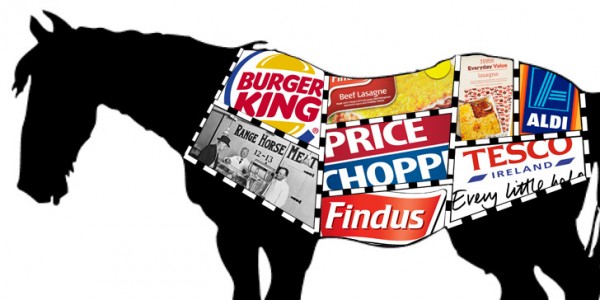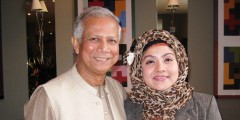No Hiding Place in the YouTube Era
February 19, 2013
Salutary Lessons in Supply Chain Management from the Horsemeat Scandal Having begun as a relatively contained problem of contamination, originally detected through routine DNA testing of burger meat by the Irish Food Safety agency, the horsemeat scandal continues to astound. The public is now rightly shocked by its sheer scale and scope. One senses …
Should we be using carrots rather than sticks?
February 12, 2013
You’ve probably heard about flashmobs, but have you heard about carrotmobs? I came across this article in the Financial Times last week (FT 31st Jan, Activists trade stick for carrotmob by Amy Tsang), which raised some interesting questions. A carrotmob is described as a group of consumers coming together to buy a company’s product in order …
“That’s the way we do things round here”
February 5, 2013
Thoughts on Business Ethics and Corporate Culture ‘Post- 9/11’, ‘post-Katrina’ and ‘post-Enron’. In a world defined by the passing of major catastrophes, there is an underlying optimism that such profoundly unsettling events also mark the beginning of something better, less horrific and morally progressive. Each new ‘post-’ seemingly galvanizes a collective urge for a …
Still Avoiding Responsibility: Business and Body Image
January 9, 2013
A recent publication by Steve Biddulph, Raising Girls, has received plenty of press coverage this week, as he claims that girls are facing a barrage of toxic messages through advertisements, TV programs, and other media outlets. This comes at a time when resurgent feminist groups are demanding that the ‘traditional’ topless models on Page 3 …
What can Mainstream banks learn from microcredit?
December 4, 2012
Capital One recently invited members of the ICCSR Team to join them at a breakfast seminar with Muhammad Yunus, Bangladeshi banker, economist and Nobel Peace Prize winner. To tie in with this event ICCSR students were asked to write short reflections on microcredit and the best submissions were invited to attend the seminar. Shakera’s submission was judged to …
Microfinance: Up Close and Personal
Capital One recently invited members of the ICCSR Team to join them at a breakfast seminar with Muhammad Yunus, Bangladeshi banker, economist and Nobel Peace Prize winner. To tie in with this event ICCSR students were asked to write short reflections on microcredit and the best submissions were invited to attend the seminar. Mei-ing’s submission was judged to …
Expanding the Sphere of Political CSR
October 22, 2012
The CSR policies and practices of MNCs often have a distinctly political feel. Amongst other things, they commonly contribute to (or undermine) human rights, and to the development of institutions that subsequently shape their activities. Whilst such political activities have been subject to considerable analysis from CSR scholars, in my just published Business Ethics Quarterly …
Social Media & Social Responsibility: Crowdsourcing, Conversations & Competition
October 2, 2012
I recently read a blog post that argued that hanging around on Twitter can be classed as work (thanks @thesiswhisperer)! As a PhD researcher in the midst of observing how businesses have shifted from communicating CSR information to stakeholders, to constructing CSR knowledge with them, I spend a lot of time immersed in online activity. …
Sponsorship, Sports and Ethics
September 19, 2012
The 2012 Olympics and Paralympics have raised issues of ethics and sponsorship of sports. Some of us have quite set critical views, e.g.: ‘There is already far too much sport, and sponsorship only encourages media saturation of these banal activities at the expense of artistic, intellectual or economic flourishing’. For others ‘Sponsorship of sports …
‘Getting away from it all’: social responsibility in tourism
September 11, 2012
Amongst a series of thoughtful comments on my last blog (thank you!), it was noted that in spite of some negative impacts on the environment, tourism was a powerful force in addressing social issues such as poverty and unemployment. In this blog, I put forward the main social benefits of tourism and reflect upon the …










